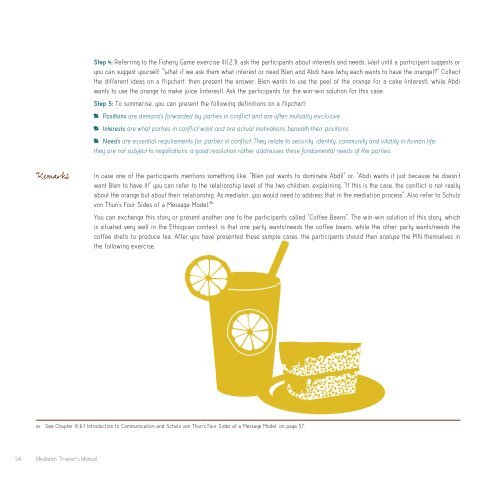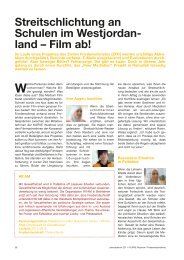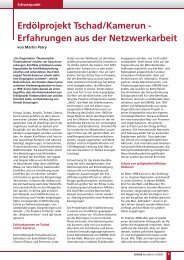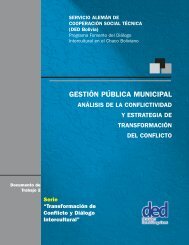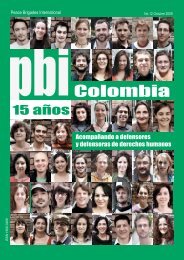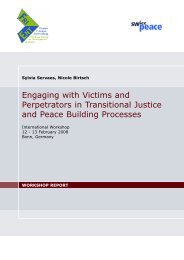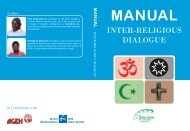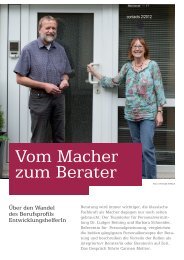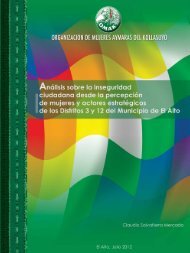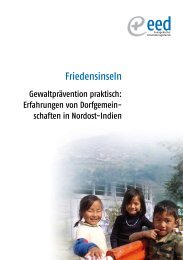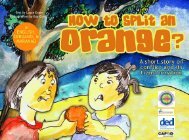Merging Ethiopian Wise-Counsel Mediation and Facilitative ...
Merging Ethiopian Wise-Counsel Mediation and Facilitative ...
Merging Ethiopian Wise-Counsel Mediation and Facilitative ...
- No tags were found...
Create successful ePaper yourself
Turn your PDF publications into a flip-book with our unique Google optimized e-Paper software.
Step 4: Referring to the Fishery Game exercise (III.2.1), ask the participants about interests <strong>and</strong> needs. Wait until a participant suggests oryou can suggest yourself: "What if we ask them what interest or need Blen <strong>and</strong> Abdi have (why each wants to have the orange)?"”Collectthe different ideas on a flipchart, then present the answer:“Blen wants to use the peel of the orange for a cake (interest), while Abdiwants to use the orange to make juice (interest). Ask the participants for the win-win solution for this case.Step 5: To summarise, you can present the following definitions on a flipchart:> > Positions are dem<strong>and</strong>s forwarded by parties in conflict <strong>and</strong> are often mutually exclusive.> > Interests are what parties in conflict want <strong>and</strong> are actual motivations beneath their positions.> > Needs are essential requirements for parties in conflict. They relate to security, identity, community <strong>and</strong> vitality in human life;they are not subject to negotiations, a good resolution rather addresses these fundamental needs of the parties.In case one of the participants mentions something like, "Blen just wants to dominate Abdi!" or, "Abdi wants it just because he doesn'twant Blen to have it!"”you can refer to the relationship level of the two children, explaining,“"If this is the case, the conflict is not reallyabout the orange but about their relationship. As mediator, you would need to address that in the mediation process". Also refer to Schulzvon Thun's Four Sides of a Message Model. 24You can exchange this story or present another one to the participants called "Coffee Beans". The win-win solution of this story,—whichis situated very well in the <strong>Ethiopian</strong> context,—is that one party wants/needs the coffee beans, while the other party wants/needs thecoffee shells to produce tea. After you have presented these sample cases, the participants should then analyse the PIN themselves inthe following exercise.24 See Chapter III.6.1 Introduction to Communication <strong>and</strong> Schulz von Thun's Four Sides of a Message Model, on page 57.34 <strong>Mediation</strong> Trainer’s Manual


